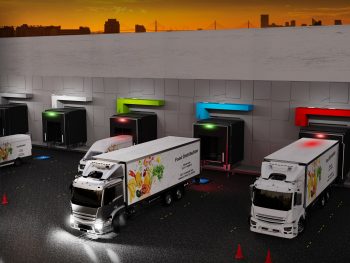Wireless charging could halve TCO for last-mile EV fleets
Equipping last-mile EV fleets with wireless charging could save up to 50% in total cost of ownership.

WiTricity’s study finds there are clear, major benefits of being able to charge last-mile EV fleets wirelessly
A new study, carried out by WiTricity, showed that in a standard plug-in model, EVs are essentially taken out of service to charge but switching to wireless charging frees EV fleets from such forced downtime.
WiTricity compared the use of 50kW plug-in charging to 24kW wireless charging with the fleet running two eight-hour shifts, leaving four hours per shift for charging and depot operations.
The study found that wireless charging in place of plug-in charging enables the duration of charging operations to double, while reducing peak electrical demand for the depot by half. It also decreases exposure to back-up energy generation infrastructure and operation costs, and cuts down on labour costs and maintenance.
Given that electric utility charges are one of the top three components of the lifetime cost of an EV – alongside vehicle miles travelled and vehicle purchase price – the result is an impressive reduction in the overall TCO of going electric.
“With businesses and government agencies upgrading their last-mile fleets to be electric – from delivery vans to mail trucks – there are clear, major benefits of being able to charge those wirelessly,” said Alex Gruzen, WiTricity CEO. “Our analysis shows that WiTricity’s technology introduces great flexibility with significantly lower costs.”












